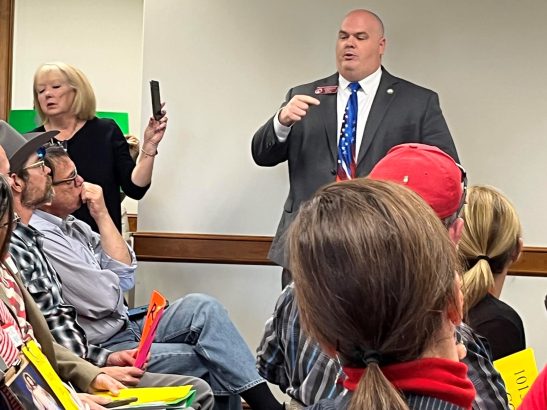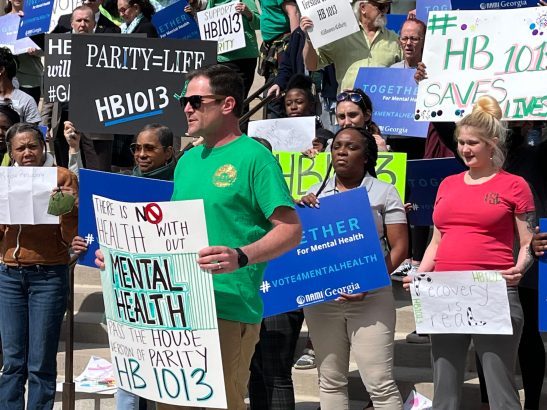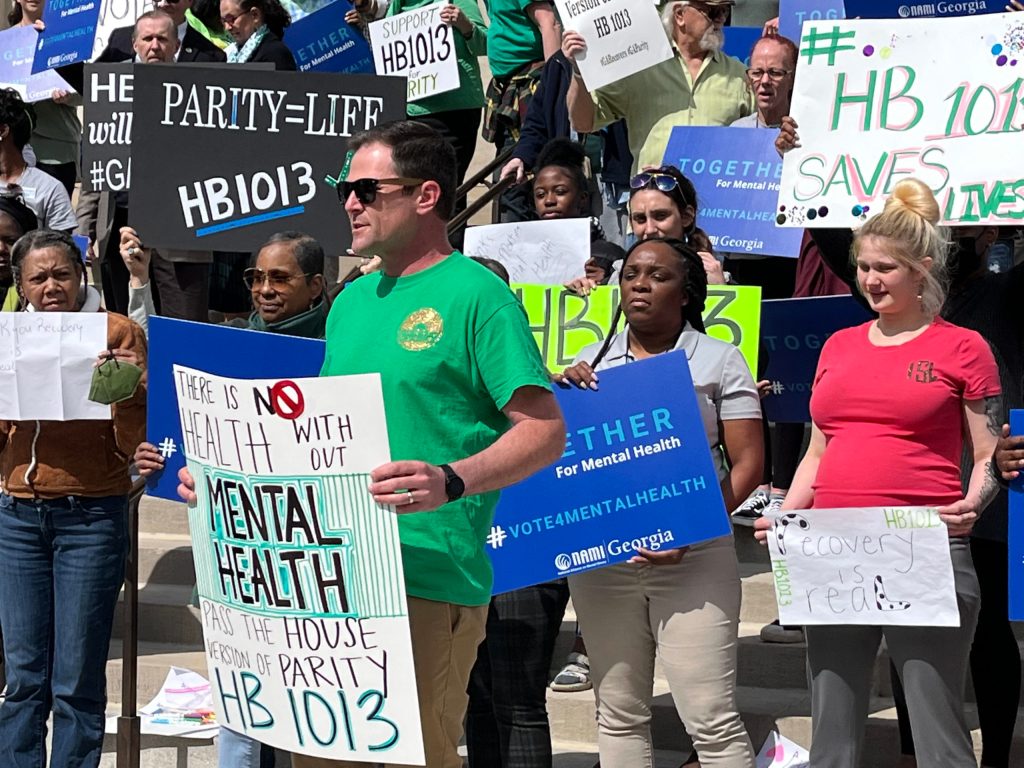A Senate committee Monday unanimously approved a rewrite of key provisions in the House’s mental health bill championed by powerful Georgia House Speaker David Ralston.
The revised version of the legislation, passed by the Senate Health and Human Services Committee, backs off the House’s stronger language on determining “medical necessity’’ of treatment, and on involuntary commitment of someone exhibiting mental health problems.
The senators’ action sets up a dramatic chain of events over the final days of the Georgia General Assembly. The legislative session ends next Monday. Republicans control both houses in Georgia.
Ralston has made a personal pitch for House Bill 1013, advocating for the legislation both at a committee hearing and in the well of his chamber. Ralston, a Republican from Blue Ridge, has called the mental health bill his top legislative priority.
But House Bill 1013 attracted grass-roots opposition after it was introduced, with concerns voiced over the legislation’s reach. A House member who voted against that bill, in an unusual move, spoke to a jammed Senate meeting room Monday before the committee convened.

State Rep. Philip Singleton, a Sharpsburg Republican who was one of three House votes against Ralston’s bill, told the vocal opponents of the wide-ranging legislation that Senate members “have addressed the stuff I’m very concerned with’’ in the new version. But he added he still may vote against the ultimate legislation, if it comes back to the House for approval. “I don’t want the government involved in health care,’’ he said.
The new Senate rewrite still contains basic parity language – requiring insurers to cover behavioral health problems on a level equal to that of physical ailments. It does, though, provide exceptions to those health plans that don’t offer behavioral benefits.
The Senate version mirrors the House requirement that Medicaid managed care insurers spend at least 85 percent of the dollars they get in premiums on medical care and quality improvements.
GHN and Kaiser Health News reported that Georgia is one of only a few states that don’t require a minimum level of medical spending and quality improvements for Medicaid insurers.
The new version contains similar incentives for the training of mental health professionals, and facilitates grants for collaborations between mental health providers, courts and law enforcement in dealing with people in crisis.
Rally for Ralston bill
Proponents of the stronger House bill gathered at the Capitol in a rally Monday before the hearing.
Rep. Sharon Cooper, a Marietta Republican and chair of a House health committee, told the rally that “some people have picked out little pieces of the bill and put out misinformation.’’

Health insurers stand to profit if the ultimate legislation is watered down, Abdul Henderson, executive director of Mental Health America of Georgia, told GHN.
David Kendricks, a DeKalb County veteran who said he attempted suicide after his return from Iraq, told the rally that the House bill would help veterans with mental health issues.
The original House bill also says the state’s definitions of “medical necessity” on mental health treatment must come from standard clinical protocols, and not be determined by insurers. The substitute bill would shift that ultimate determination back toward health insurers, said Sen. Dean Burke, a Bainbridge Republican.

Panel members said the Senate bill reaffirms the current state law, that mentally ill people must show an “imminent” risk of harm to themselves or others before they can be committed for outpatient treatment.
The original legislation would change that standard, requiring only a “reasonable expectation” that a crisis or significant deterioration “will occur in the near future.”
The chairman of the Senate Health Committee, Sen. Ben Watson, a Savannah Republican, said the changed bill “is a lot of digest. I have to applaud the House for their diligent work.”
After the panel vote, House Bill 1013 co-sponsors Reps. Todd Jones, a Cumming Republican, and Mary Margaret Oliver, a Decatur Democrat, declined to discuss any specific changes the Senate made to the original House bill.
“This is a process,’’ Oliver said. “We’ll continue to work on this.”

